‘It is the collapse of the Soviet Union that led to the fact that we missed the technology boom’
CIPR-2016: the digital world as a spoon, the difficulties of import substitution and the appearance of Russia in 2035
From 7 to 10 June Innopolis hosts the conference 'Information Technology of Industrial Russia' (CIPR). During the first debate they discussed a new driver of industrial growth — the field of electronics, called by the experts 'the antelope of growth'. The correspondent of Realnoe Vremya visited the event and witnessed the discussion of issues concerning the competitiveness of Russia on the world market of electronics and IT, the threats of mass layoffs in manufacturing due to automation, as well as the death of the profession as a concept.
'The place of dreams' of Khalikov
The moderator of the meeting — the ex-presenter of NTV channel, co-author of the documentary project Lenta.doc Aleksey Pivovarov — before the conference he briefly outlined the current situation in the Russian electronics. According to him, despite having some success in the technology sector, Russia, unfortunately, cannot claim the role of the global fast-growing leader in global electronics markets. This very sector, according to Pivovarov, is based on four major participants: manufacturers, integrators, regulators and sales markets. And until they do not learn to work together in our country, it is problematic to chase the global trends.
Another obstacle is the difficult process of import substitution. Now the share of Russian hardware in the segment of computers is only 1%. The situation could be saved by the anchor customers in the face of the largest state buyers. Without them the future of our electronics is uncertain, as these orders are the launching pad for the industry.
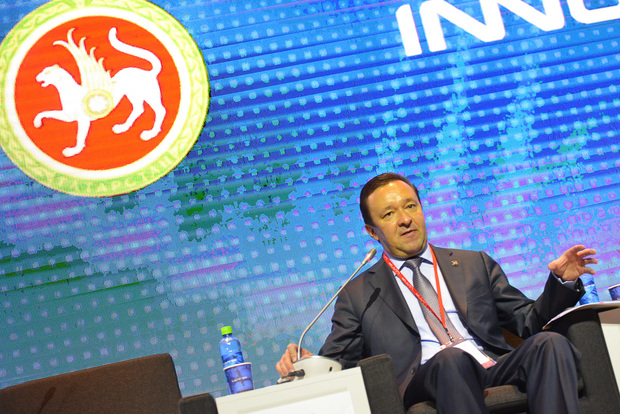
The Prime Minister of Tatarstan Ildar Khalikov expressed his joy over the fact that the project, integrated by Rostec last year, is still continued. According to Khalikov, the fact that CIPR takes place for the second time inspires confidence in the fact that such meetings in the framework of this event will be permanent.
The next speaker was the Head of Strategic planning department at Government of the Russian Federation Oleg Teplov who reminded that last year the work began in the direction of national technology initiatives.
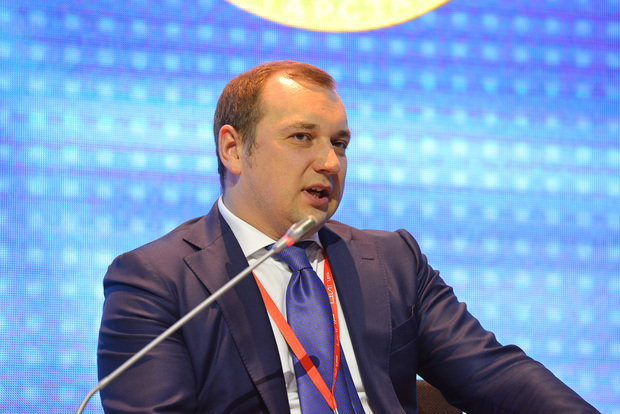
'We have adopted first four roadmaps. It is new markets — this is how we are going to see Russia in 2035. And it is impossible without digital technologies which penetrate any of the markets in the national technology initiatives. The fantastic task, given us by the leaders on what we have come up with, how Russia will look like in 2035, has developed into a large-scale work, which is now employing thousands of people. We have four road maps being implemented now, and soon will be four maps more — it is 'marinet', 'avtonet', 'avianet' and 'energynet',' said Teplov.
The evaluation of the current situation in the Russian electronics caused the reaction of the director of RT-Inform Kamil Gazizov.
'Actually, it's not so bad — in fact, everything is very good. There are many solutions, both in the field of software and in the field of hardware,' he commented.
The missing of the technology boom and the path to global competitiveness
Meanwhile, the opening ceremony of the conference, represented by a short speech of speakers of CIPR, segued into the panel discussion on the theme 'Competitiveness. Electronics as a factor of development of the industry'. One of the first speakers was the director for communications, analytics and strategic research of the Rostec state corporation Vasily Brovko.
'We wanted to analyze what happened with the Russian industrial production and the production of electronics during the 20th century. Overall, we were very consistent in the development, and it is the collapse of the Soviet Union and the subsequent humanitarian disaster that led to the fact that we missed the technology boom,' said Brovko.
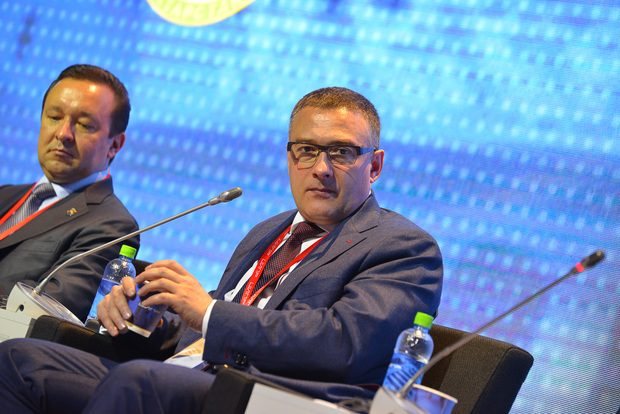
According to the representative of Rostec, the Russian production was in the stage of deepest degradation in the 1990s, and we have managed to improve the situation only closer to 2015. In terms of missed growth cycle it is still difficult to move to the global competitiveness. The forecasts for the conquest by Russia of a worthy place on the podium of high-tech countries were given by the temporary Director General of Roselektronika JSC Igor Kozlov. According to him, 2-4 years are not enough for us to move to the global competitiveness.
'I would like to note that during this time we will be able to prepare, in order on the horizon of 10 years to become exactly who we should be. We have everything for that. We have the groundwork, not from the Soviet Union but of the Russian Federation. We have people. We just need time for the relocation of the reserve into the practice. This is a large systematic work,' said Kozlov.
Innopolis is not a place for start uppers?
The debate about the position of Russia in the global electronics market gradually led the speakers to the discussion of a rather serious problem — the gap between real production and young companies-startuppers that, according to Brovko, generate very interesting ideas.
'The guys are making technological breakthroughs, but the lack of real environment, instruments and institutions for the implementation of these technologies lead to the fact that most of these good ideas raise a round of financing abroad,' said Brovko.
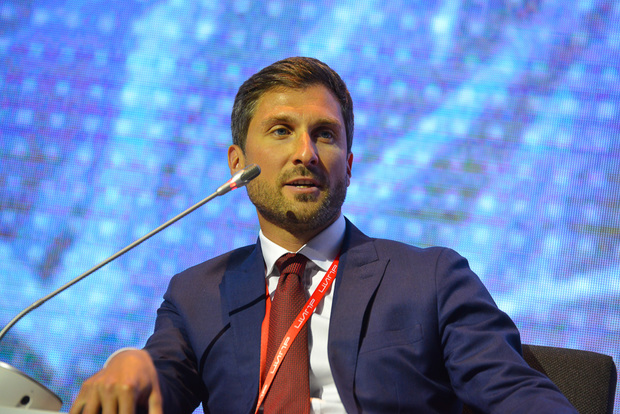
According to the representative of Rostec, it is clear that now for Russia it is extremely difficult to compete with such enticing Silicon Valley. From this follows the question: whether Innopolis is able to compete with it? Or is it only a transit point before departure abroad? The Mayor of Innopolis Yegor Ivanov answered to these questions briefly but comprehensively: 'Innopolis, in the first place — it is the city not about startups, this is probably the city about large successful companies'.
'The professions are long dead – there are no professions'
Another painful topic was the automation of production, which inevitably leads to mass layoffs of employees. The main caveat, which can slow down the introduction of new technologies in the production — it is an intuitive reluctance of managers to start the optimization of work places. Vasily Brovko noted that it is quite possible that in the coming years in the industry, there will not remain a single person, but yet hundreds of thousands of people are involved in the production, and they would not like to dismiss anyone.
'In 1998, I became CFO of KAMAZ. Then the profitability of the company was minus 27%, 84 thousand people worked in the company,' decided to comment on the situation Khalikov. 'There are no other options. Minus 30 thousand people. There are no other options anywhere. This stimulated the development of small businesses and the development of other enterprises. No matter how old are the words about productivity increase and automation – it is the only way to competitiveness.'
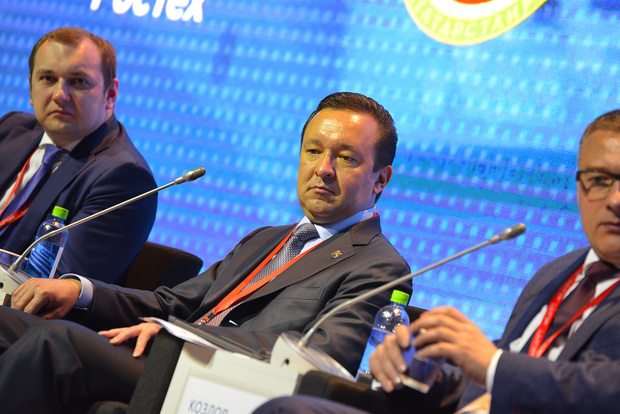
The position of Prime Minister was supported by Igor Kozlov, but he specified that in this case it is important to strike a balance.
'In Roselektronika we have 122 enterprises, the average age of the employees is 47 years. So it happened in the industry. We need to automate the process, to improve accuracy of manufacturing, to increase productivity, but all this entails natural layoffs. It is difficult to imagine where a 45-year-old woman will go after a layoff, for example. Therefore, it is important to strike a balance,' said Kozlov.
Also, the speakers tried to answer the question from the audience about what professions will sink into oblivion soon and what direction those who are going to connect their life with electronics should choose.
'The professions are long dead – there are no professions anymore. We should speak about the competencies that are needed,' said Director General of the Union 'WorldSkills Russia' Robert Urazov. 'I think the students should put the main emphasis on a few simple things. First, it is a computer programming. If you don't know how to program you will have no place in the modern world. You should be able to use the digital world just as you know how to use a spoon. Secondly, no one breakthrough does not occur now basing on individuals. All these breakthroughs are connected with a teamwork. A simple competence entitled 'how to be able to collaborate' we do not give at all – we are now raising champions-individuals, we give them KPIs from the state exam, the gold medals… There is no any indicator, which would be responsible for the ability to collect a team. The third point – an intercultural communication. If we grow these competencies in ourselves, then all the others will be gained more easily.'